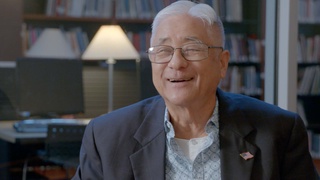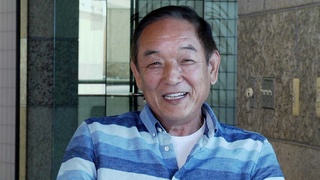Entrevistas
Great grandfather Asato was a sumo wrestler
He came to Peru because there was…there was competition, great competition between sumo wrestlers in different – three different prominent areas in Okinawa, Kumejima being one of them. And so in Peru when they were just starting developing that Lima…or that area, they invited my grandpa over because there was folks from, I believe it was…I believe it was the Kumejima people, they were consistently winning and… Funny story, my great-grandparents in…or my great-grand relatives on my dad’s side, the Yamashiro family were also sumo wrestlers. So supposedly there were two brothers in the Yamashiro family that were holding the titles or something to that extent of sumo wrestling and so the folks in Peru wanted to invite my grandpa over from Okinawa – who at that time in Okinawa was a title holder. And they promised him like, “oh you would have…you’re going to have a great life, a great family,” like it’s all going to be provided for you here in Peru, and so that’s what really brought him to Peru, so that’s great-grandpa Asato.
Data: August 30, 2018
Localização Geográfica: California, US
Entrevistado: Sharon Yamato
País: Watase Media Arts Center, Japanese American National Museum










